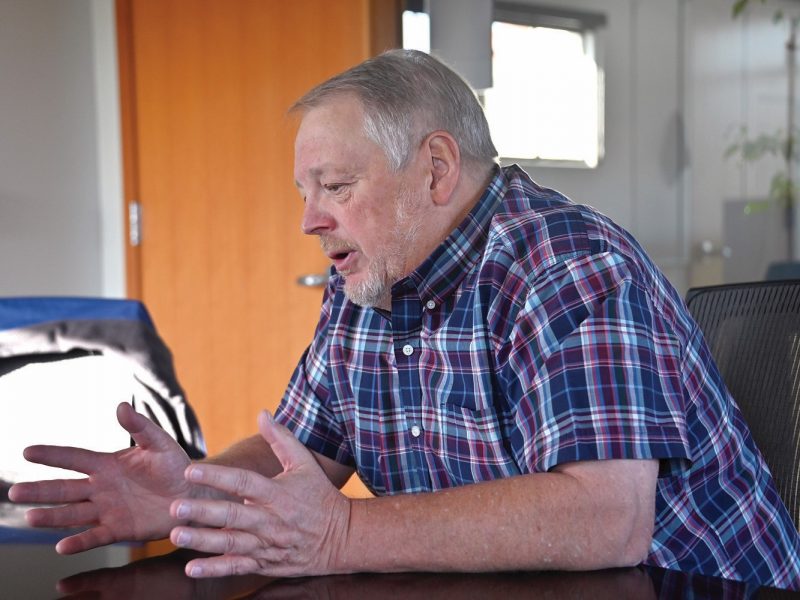EOU Brings Mental Health Training to Rural Oregon and Beyond
In the wide open landscapes of Oregon, where rural communities grapple with an ongoing scarcity of mental health providers, Eastern Oregon University (EOU) has emerged as a new and innovative partner. With a mission to address the pressing need for mental health professionals, especially in remote areas, EOU launched its Clinical Mental Health Counseling (CMHC) graduate program in the fall of 2023.

Hope Schuermann, Ph.D., Program Director and Senior Clinical Educator behind the initiative, shared her passion for making a difference: “There is a great need for mental health providers in Oregon, particularly in rural areas. This was the basis for the beginning conversations,” she expressed, emphasizing the urgency of the situation.
A collaborative effort involving the university and local mental health professionals, the journey from conceptualization to final approval took two years, with dedicated individuals like EOU Trustee Chuck Hofmann, M.D., former EOU President Richard Chaves, and Peter Geissinger, Dean of the College of Science, Technology, Math, and Health Sciences, working tirelessly to turn the vision into reality. Hofmann reflected on the 24-month process, highlighting the remarkable outcomes achieved when eastern Oregon unites for a common cause.
“This shows you how in eastern Oregon, when different constituents come together, we can make incredible things happen!” Hofmann exclaimed. The collaboration extended beyond the university, with the Eastern Oregon Coordinated Care Organization (EOCCO) providing crucial scholarship support for students entering the program, advancing their commitment to the well-being of communities throughout the region and beyond.
The CMHC program is fully online and is poised to have a profound impact on Oregon’s mental health landscape. The program ensures that during their practicum and internship courses, students work directly with clients in their local communities.
Schuermann explained, “Once our students enter into their practicum and internship courses, they will be working with clients at hospitals, agencies, community centers, schools, and practices in and around where they live.” This not only addresses the immediate need for mental health counseling, but also establishes a pipeline of compassionate professionals committed to working in their communities post-graduation.
Kate Gekeler, ’22, Retention Coordinator at EOU and a member of the inaugural CMHC cohort, shared her excitement about the program. “I do a lot of listening to students. I think I could make a difference in the current role I am in; this will provide me with a best practice method,” she said, underscoring the program’s potential to empower individuals to bring positive change to their communities.
Not only do students come from all over Oregon, they come from as far away as West Virginia, showing the program is well-developed for students across the nation. “You’ll find a lot of similarities of places including rural Oregon to West Virginia,” Hofmann said. “This program is helping address the shortages in mental health, but it’s also the opportunity to learn from one another in these unique environments.”
Gekeler already has a background in social services that amplifies her understanding of the transformative impact mental health counselors can have. “I want to keep doing what I am doing, but want to help students grow,” she expressed, showcasing the program’s potential to shape not only individual careers but also the collective well-being of communities.
Schuermann acknowledged that a career in counseling isn’t about financial gain but is fueled by a profound love for humanity. Grateful for the financial support from organizations like EOCCO, she highlighted the critical role it plays in ensuring that students can pursue careers in mental health counseling without financial barriers.
EOCCO, a coordinated care organization serving 12 counties in eastern Oregon, has pledged significant financial support with two separate gifts totaling $300,000 for scholarships. Hofmann, who is a retired physician from Baker City, was involved in the early development of the coordinated care model, explained, “We’ve been very successful, including local hospitals, local providers.” He emphasized the importance of integrating behavioral health into primary health practices, recognizing the vital role it plays in patient care.
Hofmann’s hope for the program is to attract students from eastern Oregon who will establish and practice mental health services in areas where the need is greatest. He passionately shared, “behavioral health has gotten the short stick compared to physical health,” and emphasized the need to bridge the gap and offer a helping hand to those in crisis.
“I’ve spent my entire life in eastern Oregon,” Hofmann reflected, expressing his excitement about contributing to EOU’s transformative journey. With a new president at EOU and a community dedicated to progress, Hofmann sees this as a pivotal moment to drive positive change. “It’s a special place,” he added, encapsulating the unique spirit that fuels this endeavor to bring mental health services to the heart of Oregon.
